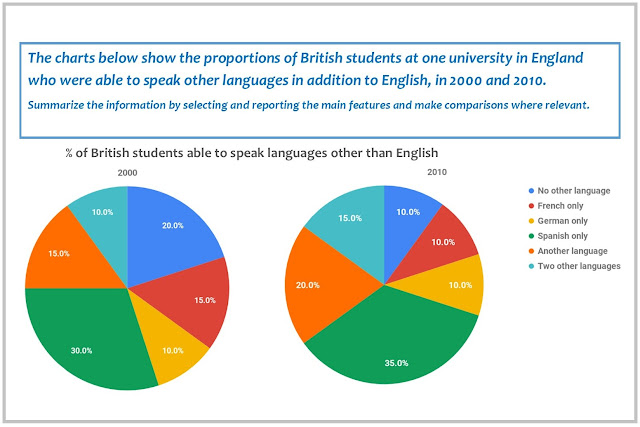Give editing the attention it deserves
This post is inspired by the guest post Nadya Borisova wrote for me “Academic IELTS without a degree in linguistics” (Part 1 and Part 2). She wrote the whole thing, while I got to comment and edit. Editing is a critical, yet underestimated part of writing. In this post, I want to give this part the attention it deserves and talk about how Nadya and I collaborated on editing her post.
The guest post idea
Being a teacher, I write about exams and language learning from a teacher perspective (naturally). I claim to know the right thing to do and demand that my students do what I say. But my students don’t always do what I demand or recommend. One reason could be that, as a teacher, I am not always able to put myself in my students’ shoes and adequately assess their needs. Additionally, to be brutally honest, IELTS 9 (my score) is out of reach for most students, so my success story might not be particularly inspiring. Most test takers or potential test takers are probably more likely to relate to my students’ success stories. So I thought, “Why don’t I share them on my blog?” and offered my IELTS 8 student to describe her success story (in English, naturally).She did! The mere fact of a student writing 5(!) pages of original and meaningful material in English was already enough to make me go ecstatic. But I actually derived even more pleasure out of it - the pleasure of editing.
The editing procedure
Stage 1.I read the whole piece to get the main idea. As I was reading it, I paid attention to the title, the sections, the way the information was organized, and the length. I commented on those aspects and Nadya replied.
Stage 2.
I gave the piece a second read, paying attention to the content this time. I wanted to cut the piece by about 1 page and looked for things that could be sacrificed or expressed more concisely. I also tried to figure out whether the information was clear to the reader (people who have never taken IELTS or those who have but didn’t get the required score). I made some suggestions, which we discussed.
Stage 3.
When I was completely satisfied with the content and the organization, I turned my attention to the language. I tried to keep Nadya’s piece as “hers” as possible and did not correct all of the mistakes or inappropriacies. In terms of grammar, I mostly corrected articles, prepositions, and tense use a couple of times. We fixed some sentence structures. The vocabulary is mostly untouched, I didn’t want to mess it up. Here are some examples of Nadya’s vocabulary use that I liked:
- You have to keep in mind that you cannot achieve overnight success in learning a language.
- But hey, IELTS is a language test after all!
- Remember, you’re on a tight schedule.
- All teachers always say: planning is a must.
By the way, these examples show that Nadya learned English from authentic resources and didn't use a Russian-English dictionary when writing her post. How? Well, this fascinating topic actually deserves a post of its own. Let’s continue with our story now.
Stage 4.
Nadya and I each gave the document a final read, resolving any final comments and edits.
When I was completely satisfied with the content and the organization, I turned my attention to the language. I tried to keep Nadya’s piece as “hers” as possible and did not correct all of the mistakes or inappropriacies. In terms of grammar, I mostly corrected articles, prepositions, and tense use a couple of times. We fixed some sentence structures. The vocabulary is mostly untouched, I didn’t want to mess it up. Here are some examples of Nadya’s vocabulary use that I liked:
- You have to keep in mind that you cannot achieve overnight success in learning a language.
- But hey, IELTS is a language test after all!
- Remember, you’re on a tight schedule.
- All teachers always say: planning is a must.
By the way, these examples show that Nadya learned English from authentic resources and didn't use a Russian-English dictionary when writing her post. How? Well, this fascinating topic actually deserves a post of its own. Let’s continue with our story now.
Stage 4.
Nadya and I each gave the document a final read, resolving any final comments and edits.
The time it took
The work was thorough on both sides and therefore time-consuming. I first messaged Nadezhda on 28 December, I received the first draft on 9 January and we finished editing on 22 January. Choosing the title took the longest and looked like this:The title that we decided to go for was the version that Nadya came up with 1 day before we published the post, completely out of the blue.
The joy and power of collaboration
Here is why I enjoyed working with Nadya immensely.First and foremost, she met the challenge fearlessly and responsibly. Additionally, Nadya was open to my suggestions and didn’t take offence at my edits. Nor did she expect me to just correct or rewrite her sentences (which many students do, but no, I don’t rewrite students’ works). I actually wrote all of my suggestions in the comment boxes and she corrected everything herself. Finally, we were both invested in this post and both worked consistently to improve it. The end result is more concise, understandable, and relatable.





Comments
Post a Comment